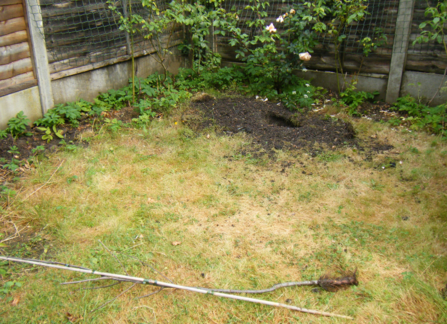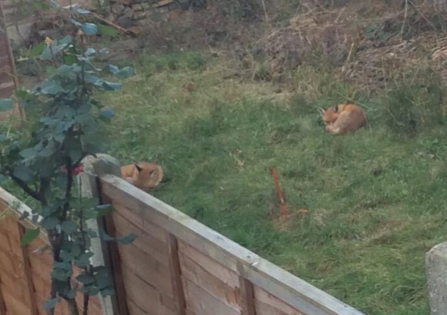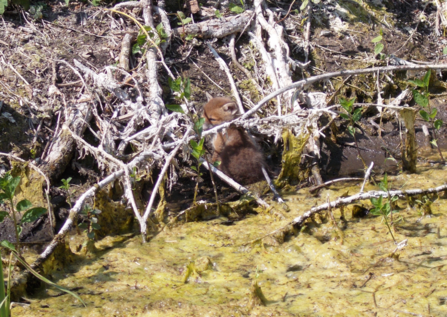Below is a very tragic scene indeed. My freshly planted apple tree lies uprooted on the grass, dug out by none other than a fiendish fox!

Dug up apple tree credit Robert Batey
How cruel and heartless must these creatures be to go out of their way to undo all of my hard work? It turns out, not at all. You see I had made a crucial mistake when planting the tree; I fertilised it with bone meal.
Foxes are omnivorous, meaning that they will eat both plants and other animals, plus they will often bury any food they find to save it for later. This means that the fox did not see a freshly planted apple tree, but instead saw a lovely meal prepared just the way they like it!
I cannot blame the fox for what it did, having seen things from its point of view, especially since the apple tree turned out to be very successful after I replanted it, so there are no hard feelings here.
In fact, I quite like seeing foxes in and around my garden. I am not much of a bird watcher and the neighbour’s cat is not what I would call ‘interesting wildlife’, therefore foxes are about the most exciting thing I can hope to see out there.

Two sleepy red foxes next door credit Robert Batey
Contrary to popular belief, having foxes in your garden can be quite a good thing. Their opportunistic feeding habits mean that they are very effective at getting rid of any pests that may eat all your plants or threaten to bring diseases into your home.
The vast majority of foxes, living in urban environments within the UK, are disease-free themselves, so the risk of you catching an infection from one of them is very low. You should definitely make sure to wash off any fox faeces you come into contact with though, just to be on the safe side.
Whether or not you are a fan of having foxes on your property, hopefully you can agree that foxes are a pleasant sight when you are in one of London’s many green spaces. Earlier this year I had a very interesting encounter with a fox in such a space. I was walking around Claybury Park when I spotted this fox cub on the opposite side of a pond.

Red fox cub at Claybury Park credit Robert Batey
I was initially very excited to see a fox cub at such a close distance, but I quickly became concerned, as the fox cub was not running away from me. Fearing the worst, I made my way round to the other side of the pond and it became apparent what the situation was. The cub’s hind legs had got stuck in the mud, at the edge of the pond, and there was a root on top of it, holding it down. As I got closer to it, the cub began to struggle; yet it still could not move. I knew I needed to help it, but touching it was a bad idea for a lot of reasons, so I had to come up with an alternative.
The best idea I had was to use a stick to prise the root off of its back. Upon doing so, the cub struggled again, but this time was able to pull itself out of the mud. It quickly went up the side of the bank towards a bush, where I was delighted to see another cub pop out and escort its sibling back inside. The presence of the second cub made me feel very relieved because it likely meant that the parents were nearby, therefore the cub would be safe and sound. Foxes are very good parents and will look after their cubs until they are seven months old.
This experience made me look forward to starting my Keeping it Wild traineeship even more, as doing the traineeship would allow me to help much more wildlife, like that fox cub, throughout the rest of my life!
I hope you can see why I personally would say foxes are more like friends than foes, despite their antics!
Sources
https://www.mentalfloss.com/article/59739/14-fascinating-facts-about-foxes
